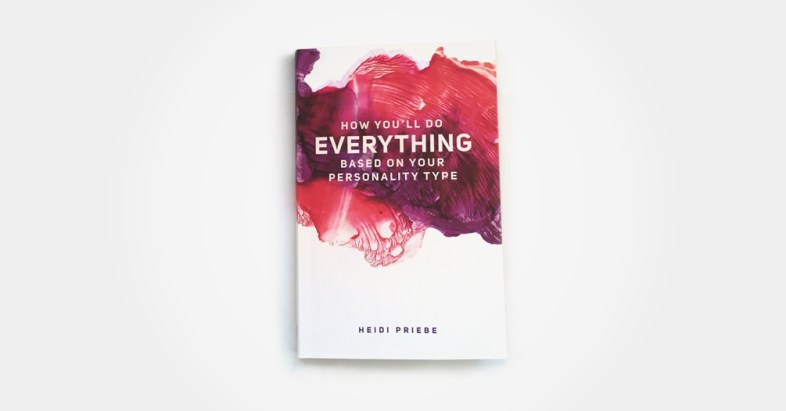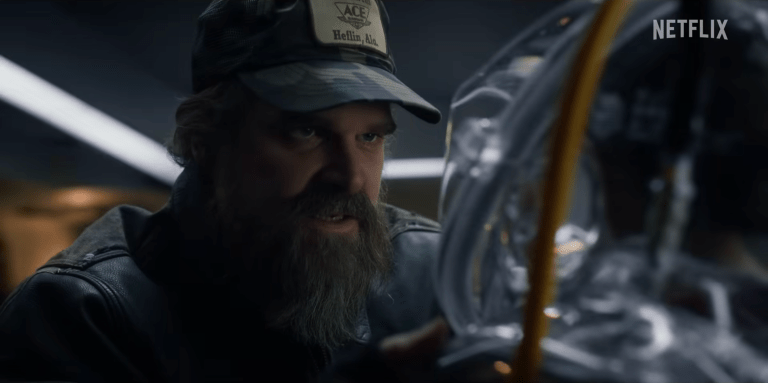
15 INTJs Share The Piece Of Wisdom That Turned Their Lives Around
This week on my MBTI Facebook Page, I asked each type to share a personal epiphany they’d had that had significantly impacted their lives. Here’s what 15 INTJs had to say about the particular piece of wisdom that turned things around for them.

![]()
1. “I’ve come to realize that everybody has their own worldview and it’s almost impossible to change someone else’s worldview to try to fit it to your own. People believe what they want to. I believe something else entirely. This is completely okay and something that I have to get used to and accept. If I can’t accept something then it fills me with rage and I constantly think about why and how that person came to believe in such nonsense. Sometimes you got to let things go and just focus on yourself to be happy.”
![]()
2. “I cannot control everything that happens to or around me. Getting upset about all the things out of my control is a waste of my precious life energy. Who wants to spend their whole life mad or anxious about one thing or another? I’d rather try to find the good in my situation and learn something instead of getting upset. That’s more important in the big picture.”
![]()
3. “Perspective, character, and perseverance–Are the 3 things that are essentials and vital to life. Without perspective you cannot build real and strong character. Once you have the right perspective of life, you build character, and then you use those two things to gain perseverance. Authentic character is VITAL for your own self.”
![]()
4. “I need constant goals to feel like I’m going somewhere in life. When I’m stagnant or not striving for anything I become down or depressed.”
![]()
5. “Poor planning on someone else’s part is not an emergency that I need to fix.”
![]()
6. “I wouldn’t call it an epiphany but a disillusionment. I experienced it when I was very young at about 4-years old. One ordinary afternoon, I was staring at my palm when I suddenly felt the fragility of life, and the cynicism of divine and official authority. I struggled immensely with organized religion, and especially so with the pedantic saying that God knows our thoughts and motives. I would irrepressibly think the most blasphemous thoughts to “test” God and his “powers”. I also struggled inordinately with the relationship with my parents. I felt that I could not respect them, and therefore could not love them. I was unhappy with their shortcomings and dissatisfied with their inability to hold themselves to the same measurement of severity as they did with me. To me, this was nothing short of hypocritical and my relationship with my parents suffered. These two struggles continue well into my early twenties before I managed to reconcile them. I wasn’t hit with an epiphany, but over years of reading literary texts, I believe I managed to hone my sensibilities. As a child, I was perhaps an unhealthy and extreme INTJ. Now, however, I am able to accept that I can love someone who garners no respect from me. I am able to understand the benefits of (organized) religion even if I still remain an atheist. I am still a work in indefinite progress, but I am happy to say that I am a balanced and healthy INTJ.”
![]()
7. “I need to slow down – if I miss a bus, there is another one in 5 minutes. if I do 2 things less in a day, the world will not end. stop running, enjoy the moment, be present.”
![]()
8. “Feelings and emotions are a healthy thing for ALL human beings to experience. While I may not be naturally inclined to outwardly express my emotions, I should never deny that they exist. I now embrace my feelings, and it’s been a great way to grow my empathy and increase my interpersonal communication skills, all things I struggle with. It’s all about introspection. I’m the queen of introspection these days.”
![]()
9. “The biggest realization that has shaped me is is that everyone out there is hurting about something. Every interaction I have with people I can make a choice to be the one that hurts them or show them love and kindness. I don’t want to leave a legacy of mean and hurtful, though it’s easy for me to be that person. I want people to come to my funeral and say yeah she could be cold and calculating, strong willed and sometimes proud, but she always loved people and showed them kindness. This world has enough pain, but I’m not going to be a contributor.”
![]()
10. “Somehow, some way, irrational people survive and live enjoyable lives. Perhaps getting out of your own head is a healthy endeavor from time to time.”
![]()
11. “We are all social animals. In unnatural to not be socially active and fulfilled.”
![]()
12. “I am a strong Christian and grew up in an extremely extraverted, feelings/experience/action-oriented American denomination, so naturally I grew up feeling guilty about being introverted and intellectual and analytical. My theological education has taught me that God invented my brain and designed me, and I can work for Him as an introverted, thoughtful, theological intellectual.”
![]()
13. “I can still vividly remember the realization that not only was I quite unique from most of my peers, but also that I did not need to be concerned with these differences. In early high school, I was extremely self conscious of my own personality and identity, never understanding why I never seemed to fit in. It dawned on me, though, that I wanted to embrace my differences rather than lose myself just to the social norms that I could never agree with. Upon discovering MBTI later in college, it immediately reminded me of this ‘epiphany’. My natural inclination to avoid social constructs and think outside of the box was always a part of me that I am so happy to have embraced rather than suppressed.”
![]()
14. “I had a realization while my first long-term relationship was breakdown, that at times I need to open up and express how I feel. I also realized, as much as I try to apply logic to a situation, when it involves other people and emotions, not matter how much logic or rationalization you use, you sometimes can’t change the outcome. I’ve learnt now, through experience the importance of letting someone in.”
![]()
15. “Just finding out that I had a “type” was an epiphany. I just thought I was weird, OCD, and too critical of others. Now that I know that there are other people (though rare) like me, it allows me to be less critical of myself. I’m not always saying ‘you’re a control freak’ to myself anymore. Now I can see its in my wiring and use it to make me a better person.”![]()
![]()












